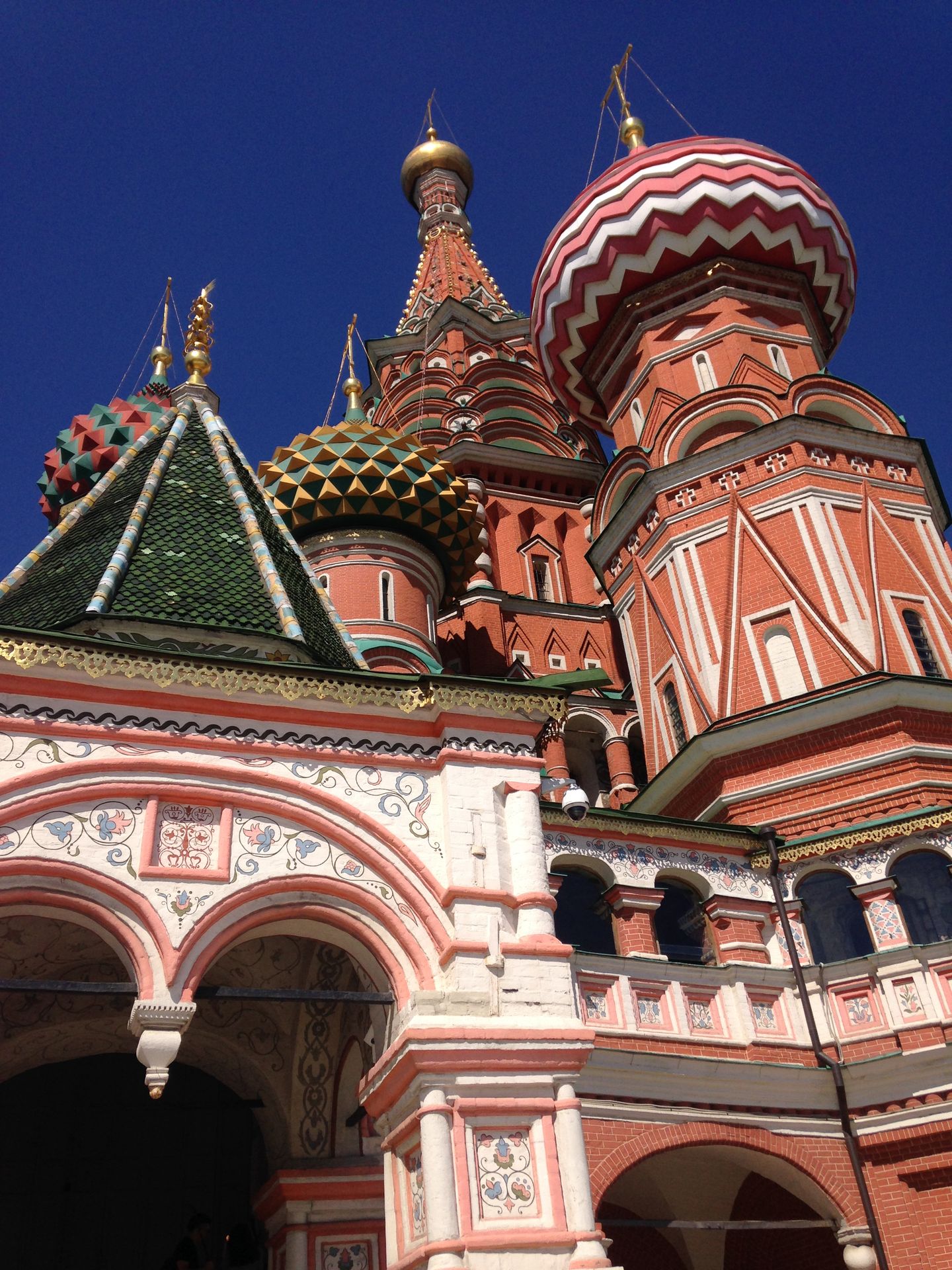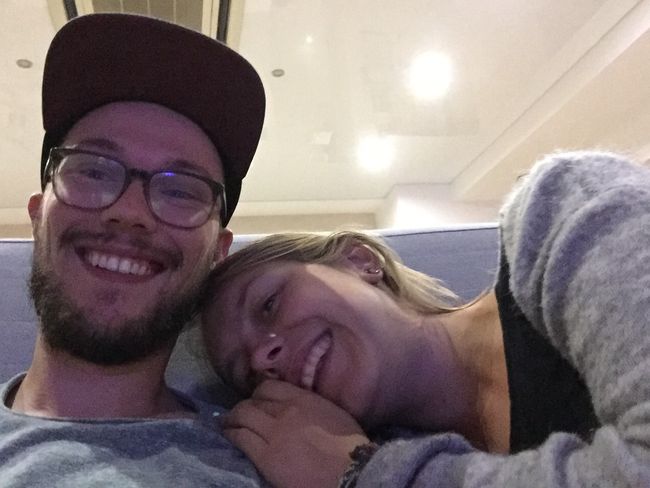
mitreneundmariedurchasien
vakantio.de/mitreneundmariedurchasien
Chapter 15: All Hearts, All Hands: Our First Two Weeks on the Construction Site
Gipatik: 25.12.2018
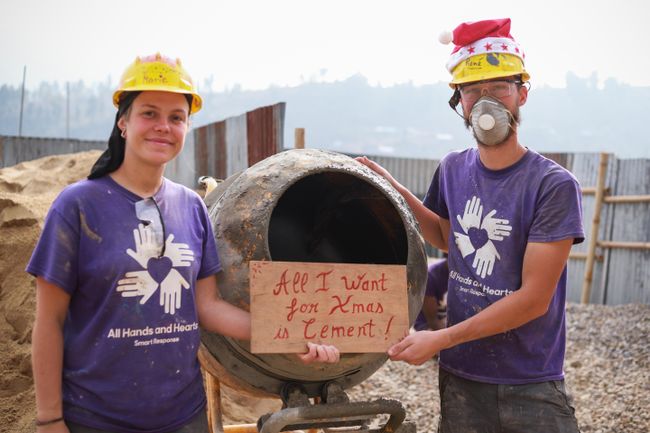
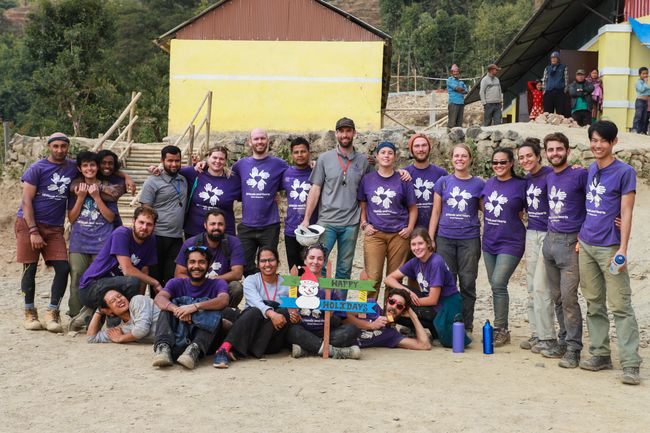
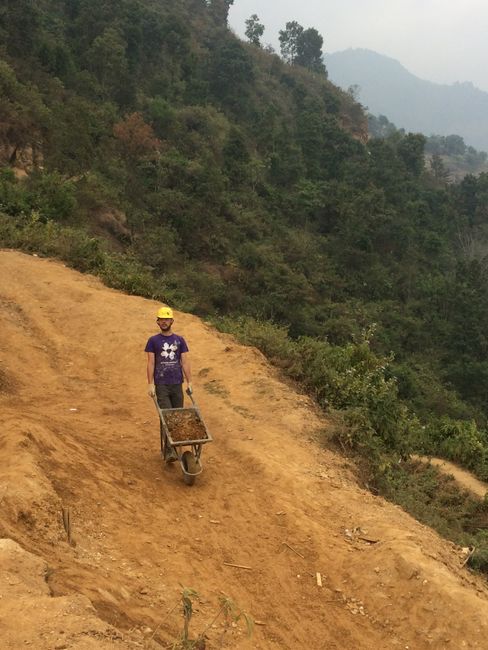
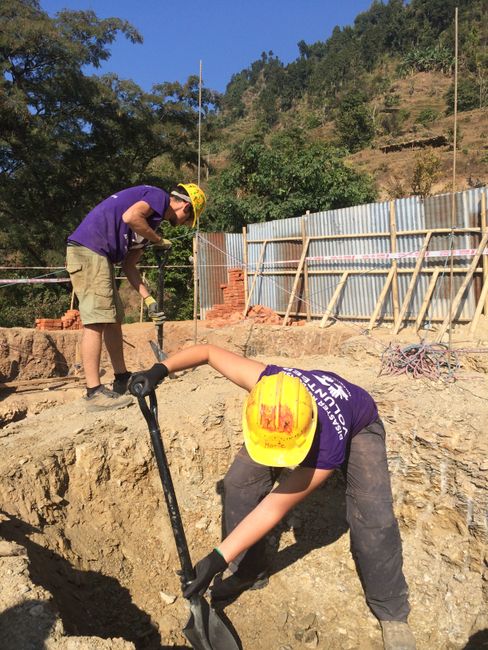
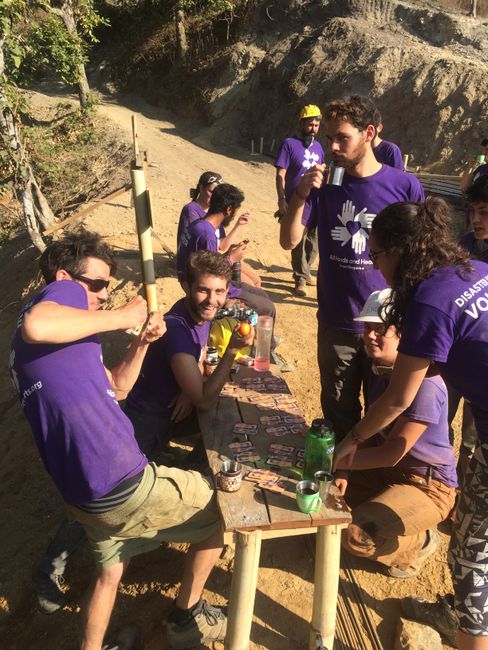
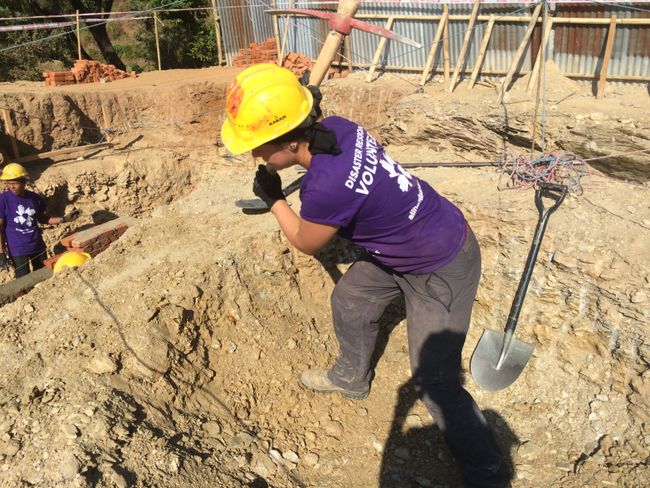
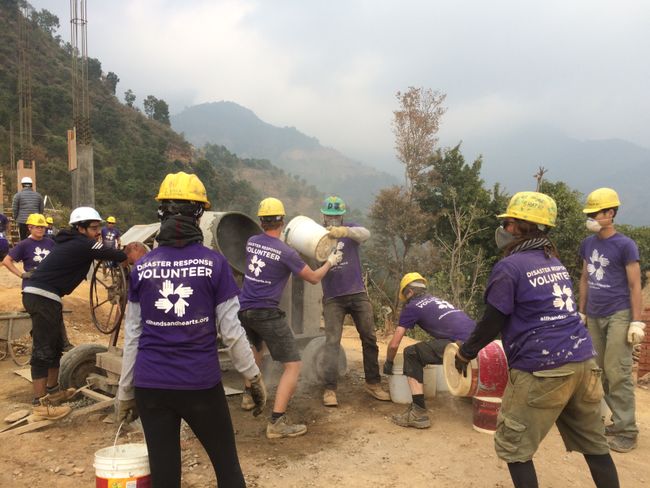
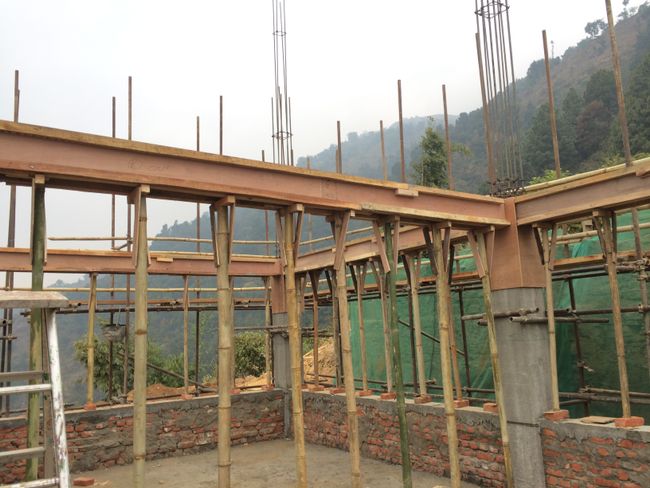
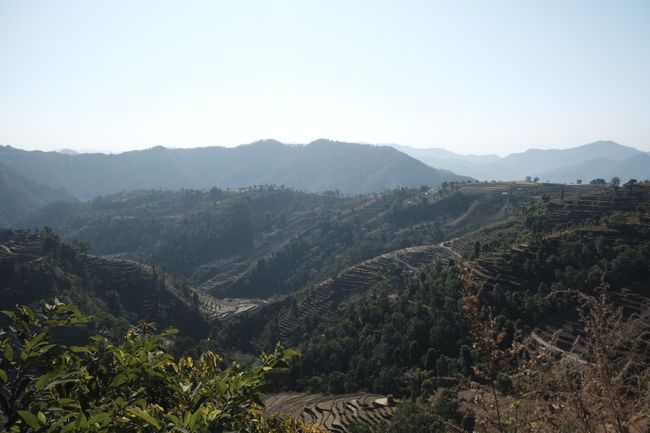
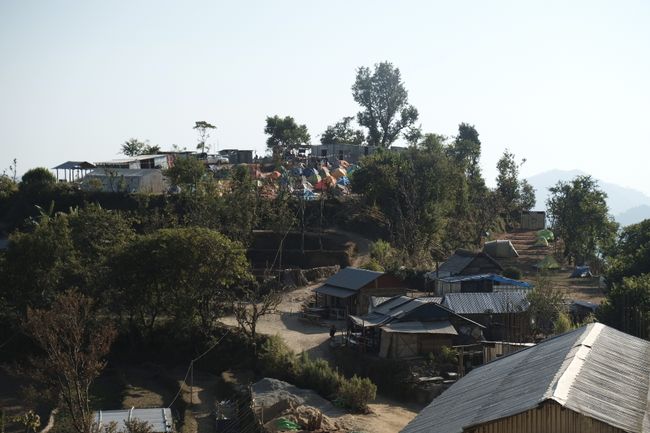
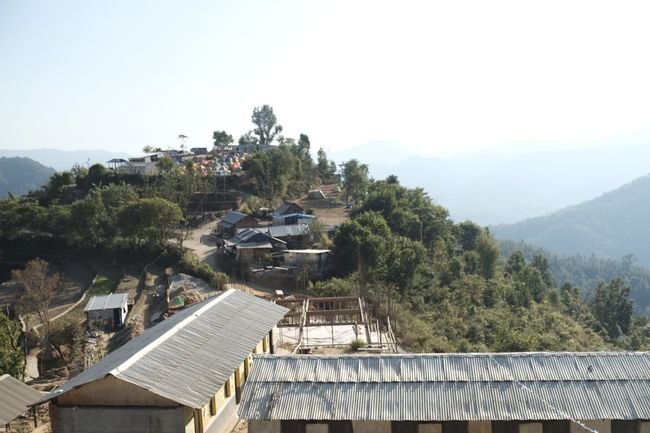
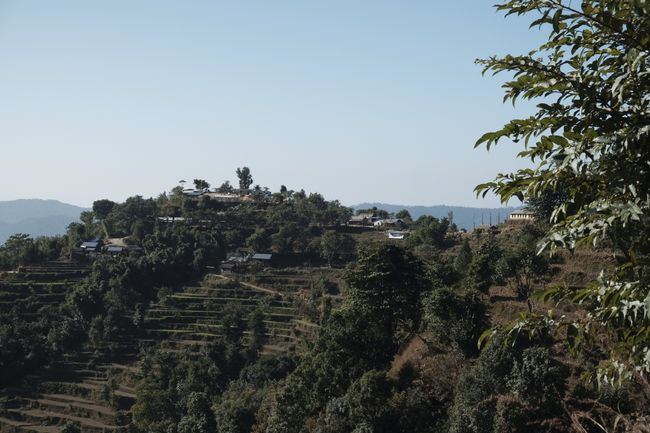
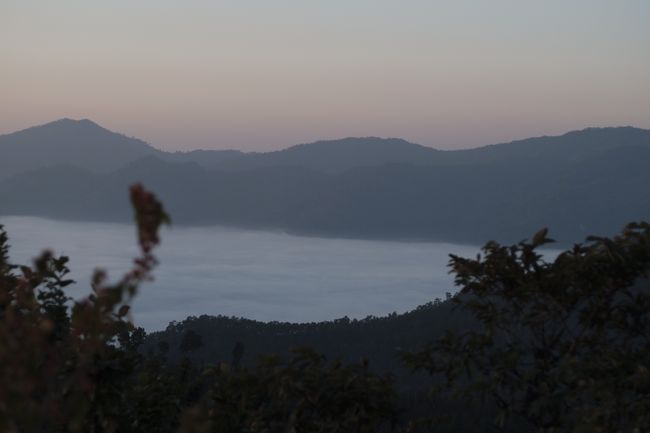
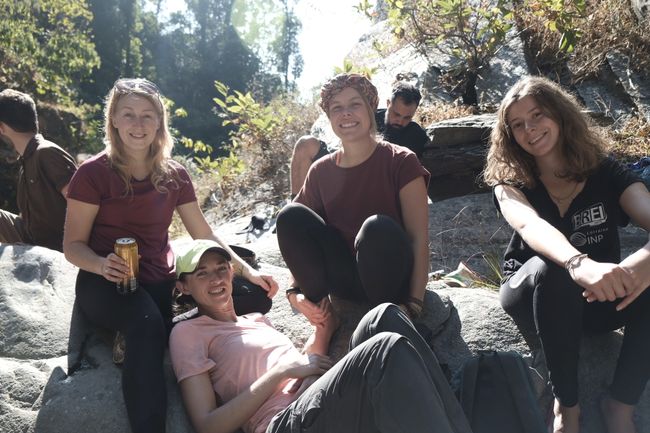
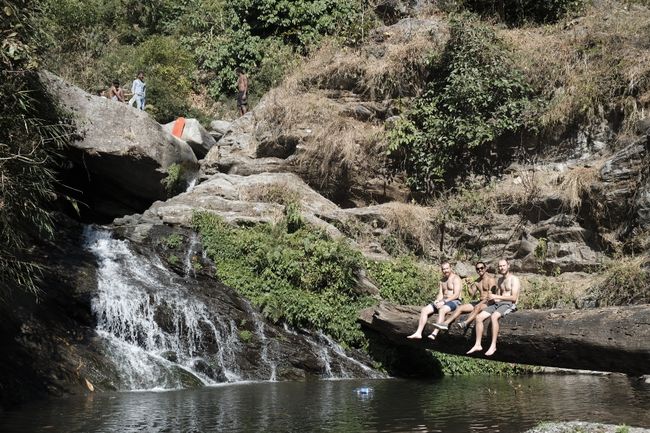
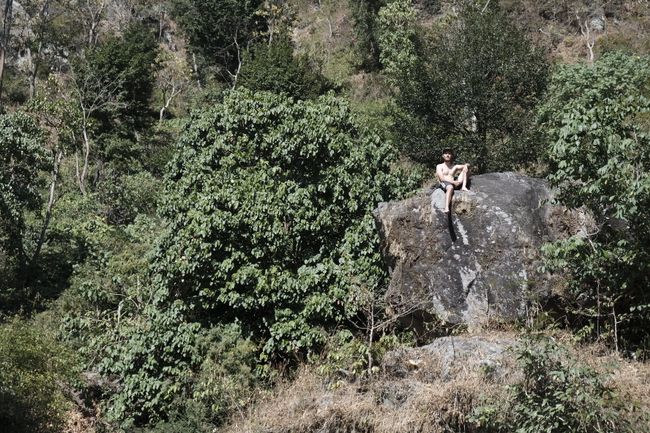
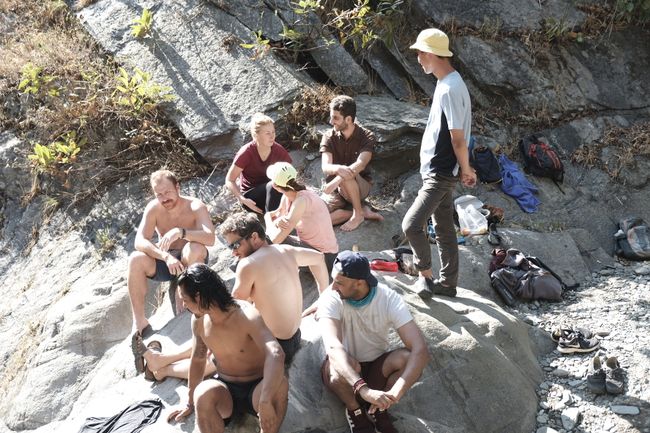
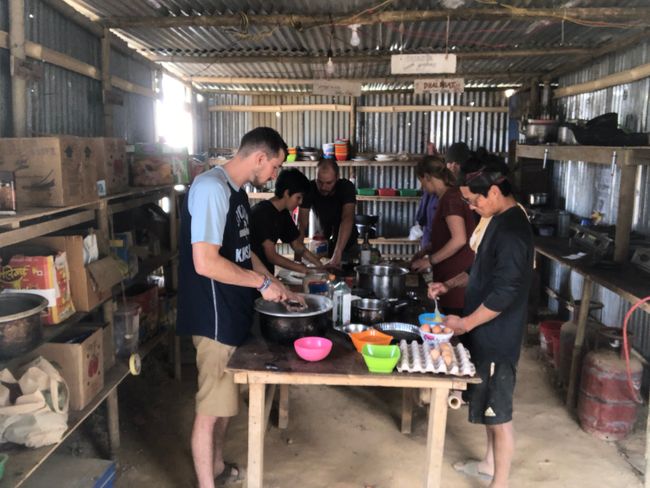
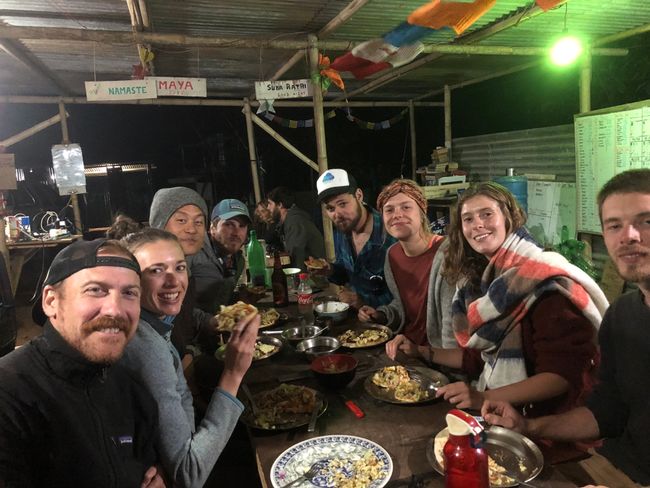
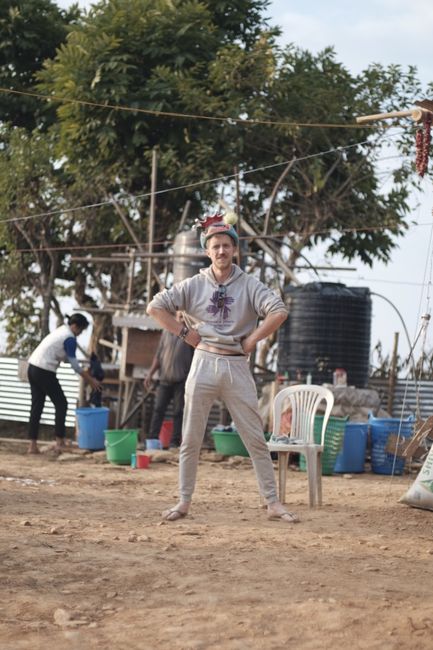
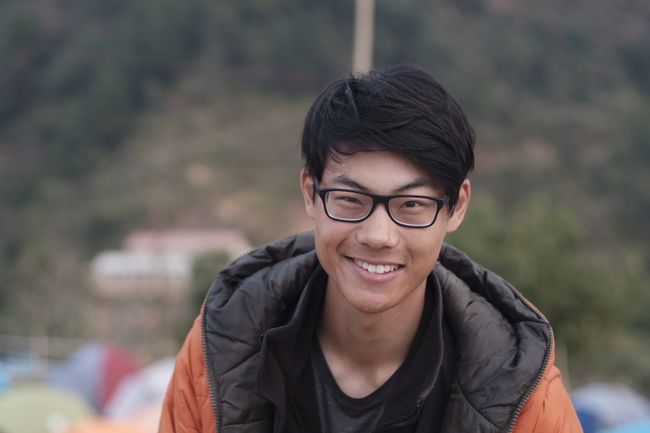
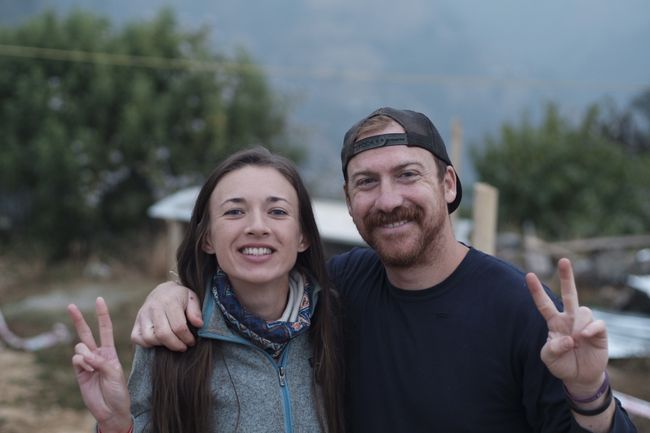
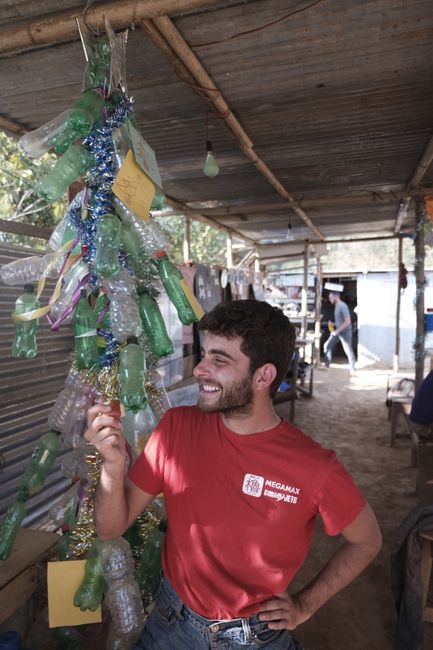
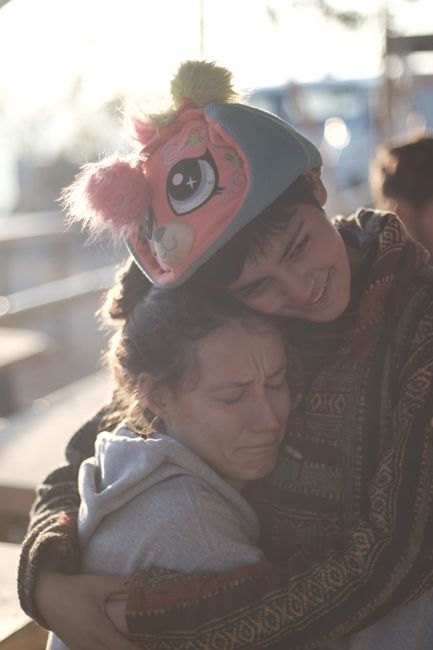
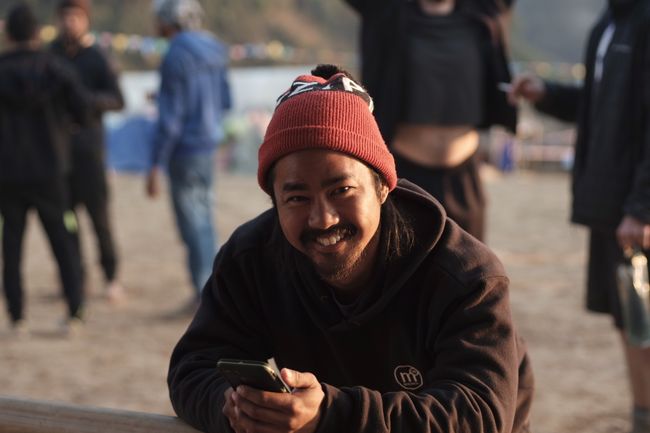
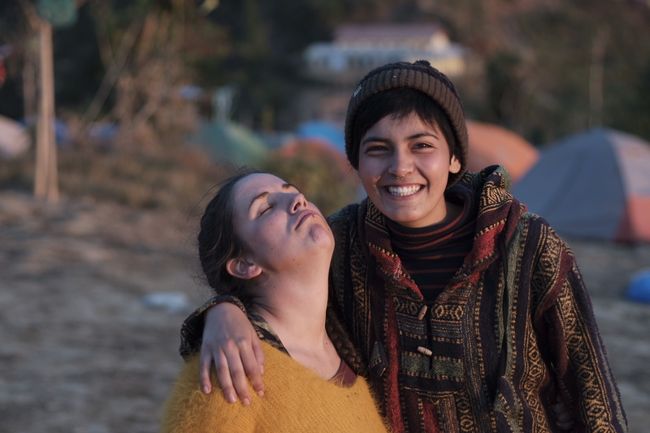
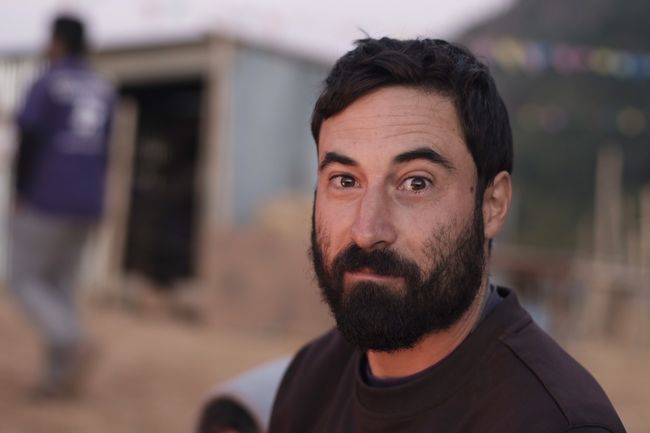
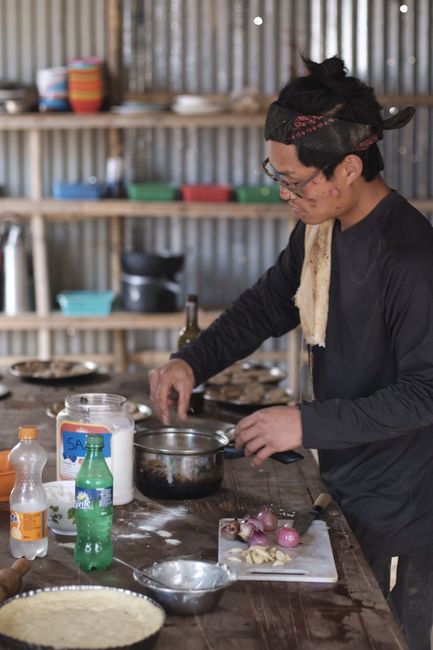
Mag-subscribe sa Newsletter
After the days in Chitwan and a short stopover in Kathmandu, we made our way to Sindhuli, a province about six hours east of Kathmandu. Because it does not benefit from tourism, Sindhuli is much poorer than the places we have seen so far. Our destination was a small village called Bandgee, which is two hours away from the nearest city and does not have clean water or electricity. There, we joined a relief project run by the aid organization all hands and hearts, which rebuilds schools in areas affected by natural disasters. However, before we could join all hands and hearts, we had to spend two days in the super boring Sindhuli because we had unfortunately forgotten to send a confirmation email about our arrival date and there was no longer a place available for us in the car. Luckily, we were able to spend the first evening with some full-time staff members and Anna and Jash, two volunteers from the project who were enjoying their break in the village. The next day, we had breakfast with the two of them and learned that the Indian and the Polish woman had met in Vietnam some time ago and got engaged on Thanks Giving during the big celebration in the camp. Two days later, it was our turn to go to the camp.
A few facts about all hands and hearts: in 2015, large parts of Nepal were destroyed by two earthquakes, resulting in more than 8,700 deaths. The number of injured people, homes lost, and children who lost access to education reached into the millions. Due to poverty in Nepal, the reconstruction is progressing very slowly, especially in remote areas that face difficulties in sourcing materials and receiving adequate help.
All hands and hearts focuses on particularly remote places that often receive no or only very rudimentary help due to the challenges involved in obtaining materials.
In the project, two schools are being rebuilt. The aim is not only to make the schools earthquake resistant, but also to create a kind of community center. Each school will have a station with toilets, washing facilities, access to clean drinking water, and a safe space for women. In Nepal, women are considered impure during their menstruation and are not allowed to enter the kitchen, touch anyone, or sleep in the house. In very conservative families, they have to sleep in the stable with the animals. This can be very dangerous, especially for young girls, and often they do not go to school during this time out of shame. In the so-called WASH, not only a toilet is built, but also a water filtration system and a small stove where girls can discreetly burn their sanitary pads. The construction of the school is organized by Nepalese engineers, and alongside volunteers, craftsmen from remote regions of Nepal are involved in the construction to learn how to build more sustainably and safely. In addition to working with locals, community integration is an important aspect. So every Wednesday evening, we spend time on the base with the craftsmen, the neighbors, and their families, and we have English lessons every Tuesday and Thursday. At the so-called Maison's Night, we all dance together with the people from the village and all the volunteers to Nepalese music. And as I said, Nepalese parties are wild: everyone goes crazy, body parts are shaken and spun around, people sing and jump around. It's just really, really beautiful. We will definitely miss these wild dance parties! Since we have to be quiet after nine, we started a quiet disco with our headlamps. We all have our favorite Nepalese song in mind and dance as wildly as possible without making a sound. Last week, we were praised a lot because our disco was quieter than anyone at the campfire could ever be.
Another highlight are the movie nights, which take place every second Friday. A Nepalese film is shown on a wall using a generator and a projector. For some parts of the village, it is the first time they have seen a movie, as there are no televisions due to the lack of electricity. As logical as it is that people without power don't watch movies, it is unimaginable to me that people older than me have never watched a movie before.
The birthdays at the camp are really funny. Mario, who told us about the project in Kathmandu, had a great moment with a cake in his face. We also met Anya again, a French girl we already knew from Pokhara.
Jezz, one of our dearest friends, also had a birthday. Since it was a Friday, the day before our day off, we were able to celebrate his birthday in a festive way. Everyone went to the pub together, played games, and enjoyed the wonderful evening. Rich, a Brit, is always the highlight of our parties. He always has 'good' ideas and makes every evening even more fun. For Christmas, he wanted to create a nude calendar of all of us on the construction site and sell it to raise donations. Unfortunately, the all hands team quickly crushed this great idea. (By that time, Rich had already taken a nude photo in Emma's tent)
Rich and Julian harmonize best. While Rich likes Julian's demeanor, the feeling is not mutual. It is always nice to see the two teasing each other. Julian is characterized by his somewhat grumpy but very lovable nature, his love for boiled eggs, his intelligence, his political knowledge, and his 17 layers of jackets.
Saturday is our only day off. The first Saturday was wonderful. We went to a waterfall with a large group, jumped into the cold water, and basked in the sun. After that, I took part in a cooking class organized by Tomo, a Japanese chef. We made pizza and actually learned a lot. (Did you know that it's best to crack eggs on flat surfaces?) The food available here is very limited. For example, there is no cheese up here. However, Tomo was very creative and let us put kimchi, mashed potatoes, and much more on the pizza, and lo and behold, it was really delicious.
The following Saturday, we wanted to bake Christmas cookies with a few people. Unfortunately, it didn't work out so well with our oven and the buffalo butter, which always tastes a bit rancid.
Before Kiki, a Norwegian volunteer who always has a lot to drink, but at the same time learned Nepali just through her contact with the Maisons, left, she organized a huge limbo party that was just super funny.
Another close friend of ours is Ben, whose real name is Hardeep, but who definitely told me on the first evening that his name is Ben. So I called him that for days until it turned out that this is not his name at all. I was the laughingstock for the rest of the evening, but I'm still sure that he just introduced himself incorrectly.
The workdays usually start at six o'clock. We make breakfast and prepare for the day so that we can be on the construction site at 7:30. The work on the construction site mostly consists of assisting the Nepalese craftsmen, which means digging holes for foundations, mixing concrete, soaking bricks in water so that they do not absorb the water from the mortar, and then bringing them to the right places, or building scaffolding. After a lunch break between 12 and 1, during which we always have dhal bhat, we work until four o'clock. The work is often very, very hard. Digging holes in the often rocky ground is really exhausting, even an empty wheelbarrow becomes heavy when you push it up a hill, and a bag of cement weighs fifty kilograms and has to be moved from A to B somehow. René worked in the WASH team for a week and did almost nothing else but these heavy tasks. Thanks to his great team, the work still seemed really cool. In the first week, I did many different things. At first, I mixed cement, and then I built forms for the building and tried my hand at carpentry there. Now we're at the other school. We have to leave much earlier for this one because we drive there by car. It's a really terrible ride when you sit in the back on the loading area. While you're being tossed back and forth and holding on tight to avoid falling off the seat, empty water canisters roll over you. But at the front, the ride is a lot of fun. The four of us dance on the back seat to good music, wave to the children, and celebrate the beautiful nature. The work at the other school is completely different. You are not assigned to a specific task but constantly switch. In the morning, we do a warm-up circle, and I introduced my favorite warm-up game, the Mango. (Big thanks to Katha, who showed me the game in Germany) Everyone loves the Mango. Then we also dig, saw, and throw bricks from one place to another. Catching and throwing bricks is one of the best jobs and it's just a lot of fun! At the end of the day, you have to hurry to secure a front position in line for the shower. After showering, there is usually an hour until the meeting at 6, where the next day is planned. These meetings have a lively atmosphere with everyone shouting and cheering 'Whoo' from all sides. Then we have dinner at 6:30 (no dhal bhat) and then free time until nine when the quiet hour begins and the generator is switched off, meaning no light and being quiet. During free time, you can play frisbee, read a book, or spend time at the campfire on the base, where there is usually a lot of singing and guitar playing. You can also go to the pub, which serves small snacks like momos (Nepalese dumplings) and chowmein (fried noodles), as well as beer, cola, or a rice-based liquor called Roxi. Roxi is sold in old plastic bottles and is a somewhat milky drink that contains between 15 and 30% alcohol, making it a bit of a gamble. When you drink a glass, you never know if it's more like a glass of wine or a glass of vodka.
Our camp is a small tent city with a community kitchen, showers consisting of a bamboo cabin and a bucket, and compost toilets that are "flushed" with sawdust instead of water. At the moment, there are people from more than 20 nationalities living here from all over the world, so there are many different impressions. During the two weeks we spend together continuously, we get to know each other as well as it would usually take a much longer time. We become a huge family. Life on the base is very familiar, even though people constantly come and go and there are currently more than 60 people living here. Farewells to the other volunteers are often very tearful. It was really tough for us to say goodbye to Alex and Laura. Alex plays in a small ultimate frisbee team in the USA and showed us many tricks. The two of them are also fantastic Bollywood dancers, so they will be sorely missed at Maison's Night. Next, they are probably going to Hawaii. Alex has set an alarm on his phone for every day in February, reminding him to send us a postcard. Next year, they may visit us at Vainstream festival. Hopefully, that will work out!
We are lucky that two of our favorite friends in the camp are likely to study in Germany next year. There is Thiago, who turns the boring job of sieving sand into a huge dance party with his Brazilian music. And then there is Hanna, an Iranian who is super warm and loving and is called Baby Bear by everyone.
We are now halfway through the project. Since we like it so much, we have extended until January 9th. Some of our close friends will take their break at that time, so we can all celebrate my birthday together in Kathmandu.
Finally, to annoy you all once again, we would like to make a small request for a donation to the project. The money will be used for building materials and to pay the craftsmen and engineers, as well as preparing meals for the people working on the project. So if you feel the need to give us something for Christmas, don't know where to put your money, or don't want us to starve, it would be great if you could consider making a donation through the following link.
https://give.allhandsandhearts.org/fundraiser/1807143
At the same time, we want to thank everyone who has already donated. You guys are amazing and are becoming part of an even bigger project.
Tonight and tomorrow, we will be celebrating Christmas here. It's not really Christmassy, but still really nice. We wish you all a beautiful and contemplative Christmas with your loved ones!
Mag-subscribe sa Newsletter
Tubag
